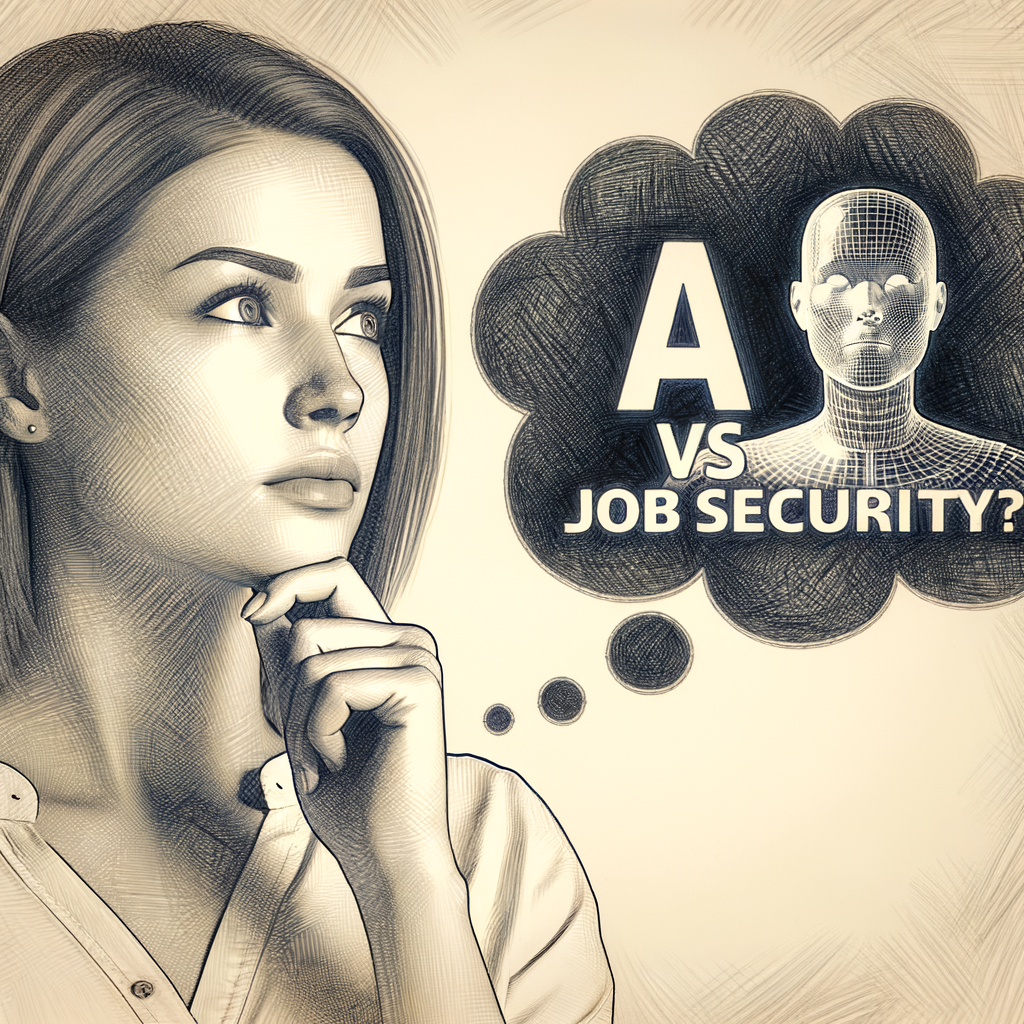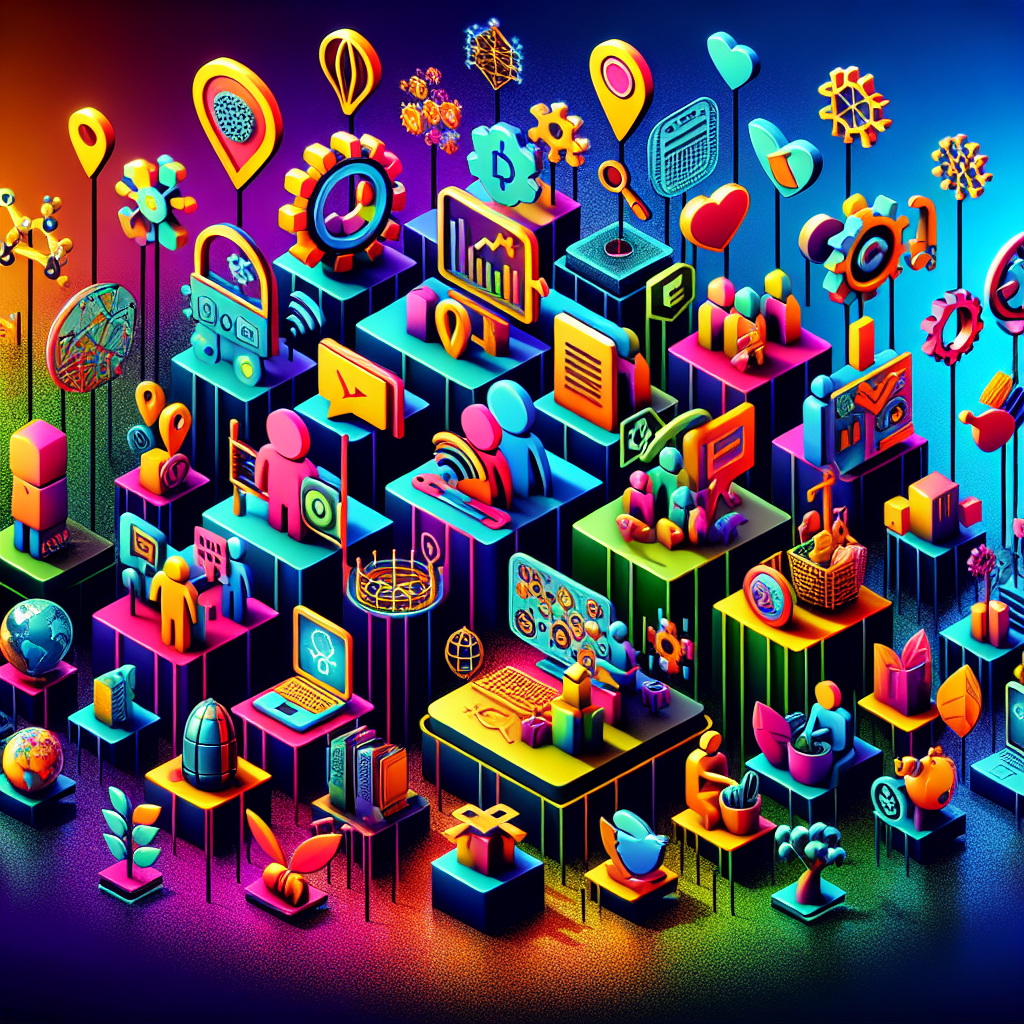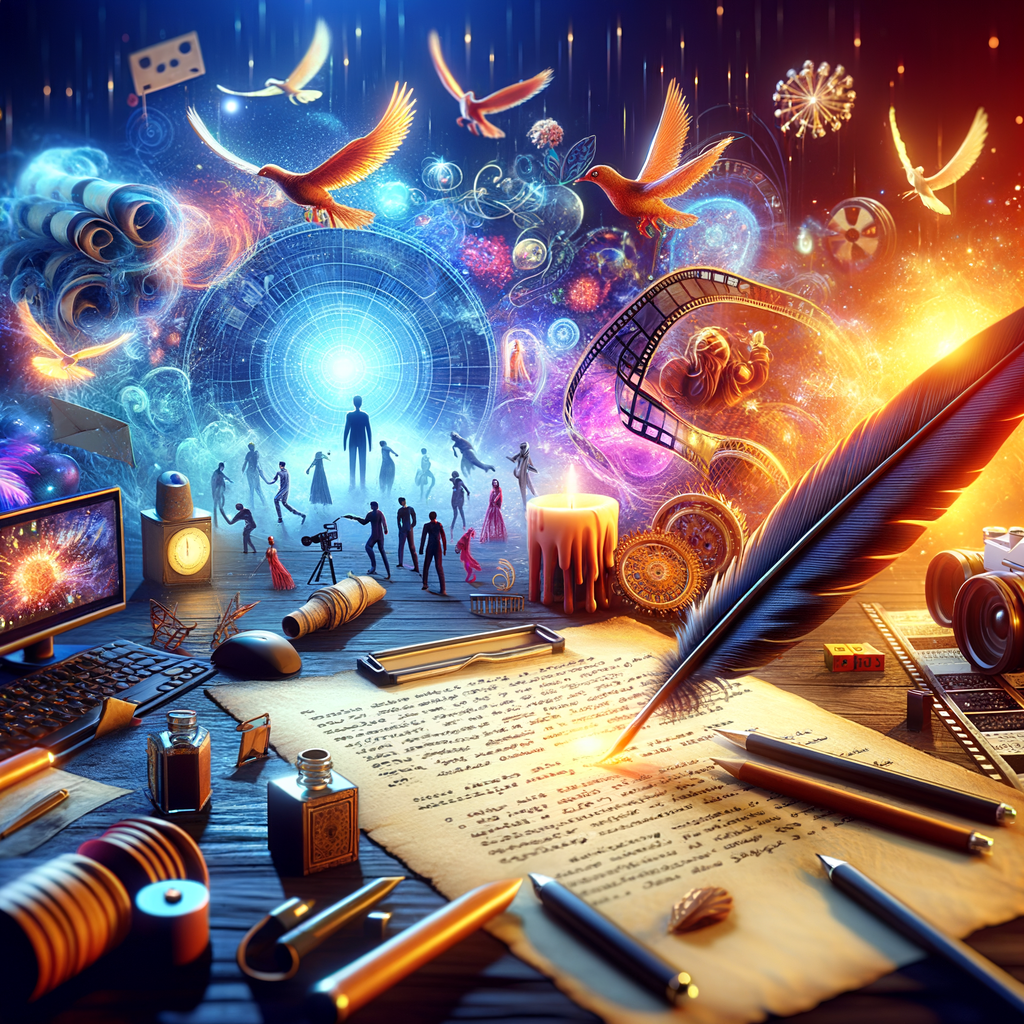
Discover how generative AI is transforming the film industry, from scriptwriting and visual effects to editing and animation. Explore the benefits, ethical challenges, and future possibilities of AI in filmmaking, along with real-world case studies showcasing its impact on Hollywood.
Artificial intelligence is no longer just a concept from science fiction; it has become a powerful tool that is transforming various industries, including entertainment. In the film industry, generative AI is increasingly being used to create content, streamline production, and enhance viewer experiences. This article delves into how generative AI is revolutionizing the film industry, exploring its applications, benefits, and the future potential of this groundbreaking technology.
Index
- Introduction
- The Role of AI in Filmmaking
- Scriptwriting and Storytelling
- Visual Effects and Animation
- Editing and Post-Production
- The Benefits of Using AI in Film Production
- Cost Efficiency
- Enhanced Creativity
- Improved Audience Engagement
- Real-Time Feedback and Iteration
- Case Studies: AI in Action
- “Gemini Man”: AI De-Aging Technology
- “The Irishman”: AI for Visual Effects
- Pixar’s AI-Driven Animation Tools
- Ethical Considerations and Challenges
- Deepfakes and Digital Manipulation
- Job Displacement
- Creativity vs. Automation
- The Future of AI in Film
1. Introduction
The entertainment industry has always been at the forefront of adopting new technologies, and AI is no exception. From enhancing visual effects to generating scripts, AI is making its mark in Hollywood and beyond. This transformation is driven by generative AI, a subset of artificial intelligence that can create new content from scratch. By analyzing vast datasets, generative AI can produce everything from realistic visuals to compelling narratives, opening up new possibilities for filmmakers.
2. The Role of AI in Filmmaking
Generative AI is changing the way films are made, offering tools that can assist in every aspect of the production process. Whether it’s generating ideas, creating special effects, or editing, AI is becoming an indispensable part of the filmmaker’s toolkit.
Scriptwriting and Storytelling
One of the most intriguing applications of generative AI in film is its ability to assist in scriptwriting. By analyzing existing scripts and narrative structures, AI can generate new story ideas, dialogues, and even entire scripts. While AI-generated scripts may not yet match the creativity of human writers, they provide a valuable starting point, allowing screenwriters to develop and refine ideas more efficiently.
AI is also being used to predict audience reactions. By analyzing previous box office data, social media sentiment, and audience preferences, AI can help filmmakers craft stories that are more likely to resonate with viewers.
Visual Effects and Animation
Generative AI is revolutionizing visual effects (VFX) and animation by automating complex processes and generating highly realistic images. AI-driven tools can create stunning visual effects that would be time-consuming and costly using traditional methods. For instance, AI can generate realistic landscapes, characters, and even facial expressions, saving countless hours of manual work.
In animation, generative AI is used to create lifelike movements and expressions for characters. By learning from vast datasets of human motion, AI can produce animations that are more fluid and realistic, enhancing the overall quality of the film.
Editing and Post-Production
Editing is another area where generative AI is making a significant impact. AI tools can analyze hours of footage and suggest the best shots, angles, and sequences, speeding up the editing process. Additionally, AI can be used for color grading, sound design, and even dubbing, automating tasks that traditionally require a lot of manual effort.
AI is also being used to enhance old footage. By analyzing and upscaling low-resolution videos, AI can restore and modernize classic films, bringing them to new audiences in high definition.
3. The Benefits of Using AI in Film Production
The integration of generative AI in film production offers numerous benefits, from cost savings to creative innovation. Here are some of the key advantages of using AI in filmmaking:
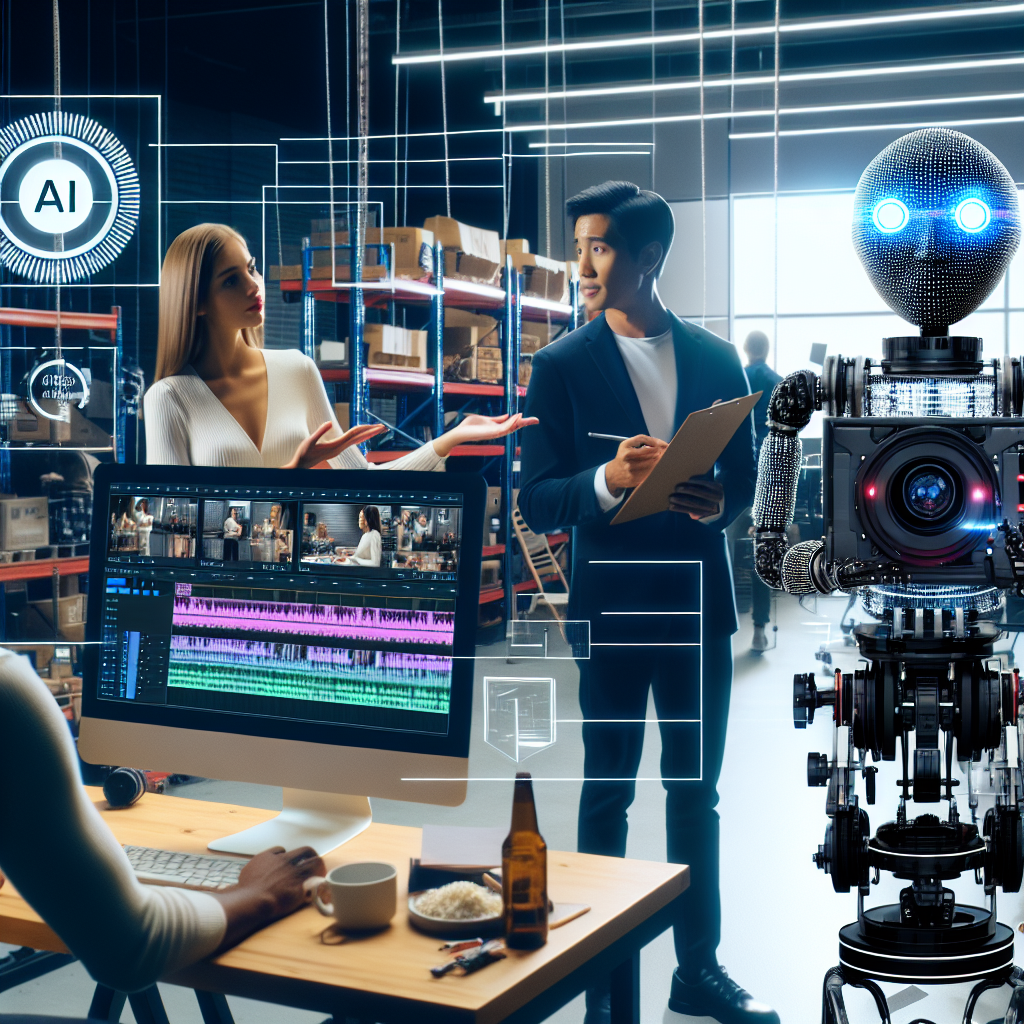
Cost Efficiency
One of the most significant benefits of using AI in film production is cost efficiency. AI can automate time-consuming tasks such as editing, visual effects, and animation, reducing the need for large teams and lengthy production schedules. This not only cuts costs but also allows filmmakers to allocate resources to other areas, such as marketing and distribution.
Enhanced Creativity
While some may fear that AI could stifle creativity, the opposite is true. Generative AI can enhance creativity by providing filmmakers with new tools and ideas. For example, AI can generate multiple versions of a scene, allowing directors to choose the one that best fits their vision. Additionally, AI can suggest creative solutions to problems that might arise during production, such as how to shoot a challenging scene or create a specific visual effect.
Improved Audience Engagement
AI can also help filmmakers better understand their audience. By analyzing data from social media, streaming platforms, and box office performance, AI can identify trends and preferences, allowing filmmakers to tailor their content to meet audience expectations. This can lead to higher engagement, better reviews, and ultimately greater success at the box office.
Real-Time Feedback and Iteration
Generative AI allows filmmakers to receive real-time feedback during the production process. For example, AI can analyze a rough cut of a film and suggest improvements, such as changes to the pacing or dialogue. This enables filmmakers to iterate quickly, making adjustments on the fly and ensuring that the final product meets their creative goals.
4. Case Studies: AI in Action
Several high-profile films and studios have already begun to integrate generative AI into their production processes. These case studies demonstrate the potential of AI to revolutionize the film industry.
“Gemini Man”: AI De-Aging Technology
In the 2019 film “Gemini Man,” starring Will Smith, AI played a crucial role in creating a younger version of the actor. Using AI-driven de-aging technology, the filmmakers were able to generate a realistic, younger version of Smith that interacted seamlessly with the older version. This was made possible by training the AI on thousands of images and videos of Smith from his earlier career, allowing it to generate a lifelike digital double.
“The Irishman”: AI for Visual Effects
Martin Scorsese’s “The Irishman” also used AI to create groundbreaking visual effects. The film employed AI to de-age its stars, Robert De Niro, Al Pacino, and Joe Pesci, allowing them to portray characters across several decades. The AI-driven process involved analyzing the actors’ facial movements and features from previous films to create a realistic, younger appearance.
Pixar’s AI-Driven Animation Tools
Pixar, a leader in animation, has embraced AI to enhance its creative process. The studio uses AI-driven tools to generate realistic character movements, facial expressions, and textures. These tools analyze vast amounts of data to produce animations that are both lifelike and emotionally resonant. By integrating AI into its workflow, Pixar has been able to push the boundaries of what is possible in animation.
5. Ethical Considerations and Challenges
While the benefits of AI in film production are clear, the technology also raises several ethical considerations and challenges. As AI becomes more prevalent in filmmaking, it is essential to address these issues to ensure responsible use of the technology.
Deepfakes and Digital Manipulation
One of the most significant ethical concerns surrounding AI in film is the potential for misuse, particularly in the creation of deepfakes. Deepfakes are AI-generated videos that manipulate existing footage to create realistic but false representations of people. In the context of film, this technology could be used to create fake scenes or manipulate actors’ performances without their consent.
Job Displacement
The increasing use of AI in film production has also raised concerns about job displacement. As AI automates tasks traditionally performed by humans, such as editing, VFX, and animation, there is a risk that some jobs could become obsolete. However, it is essential to recognize that AI is also creating new opportunities, particularly in areas such as AI programming and data analysis.
Creativity vs. Automation
There is an ongoing debate about whether AI can truly be creative or if it merely automates the creative process. While AI can generate content and suggest ideas, it still relies on human input and direction. The challenge for filmmakers is to find the right balance between leveraging AI for efficiency and preserving the human touch that defines great cinema.
6. The Future of AI in Film
As AI continues to evolve, its impact on the film industry is likely to grow. Here are some potential future developments that could shape the next era of filmmaking:
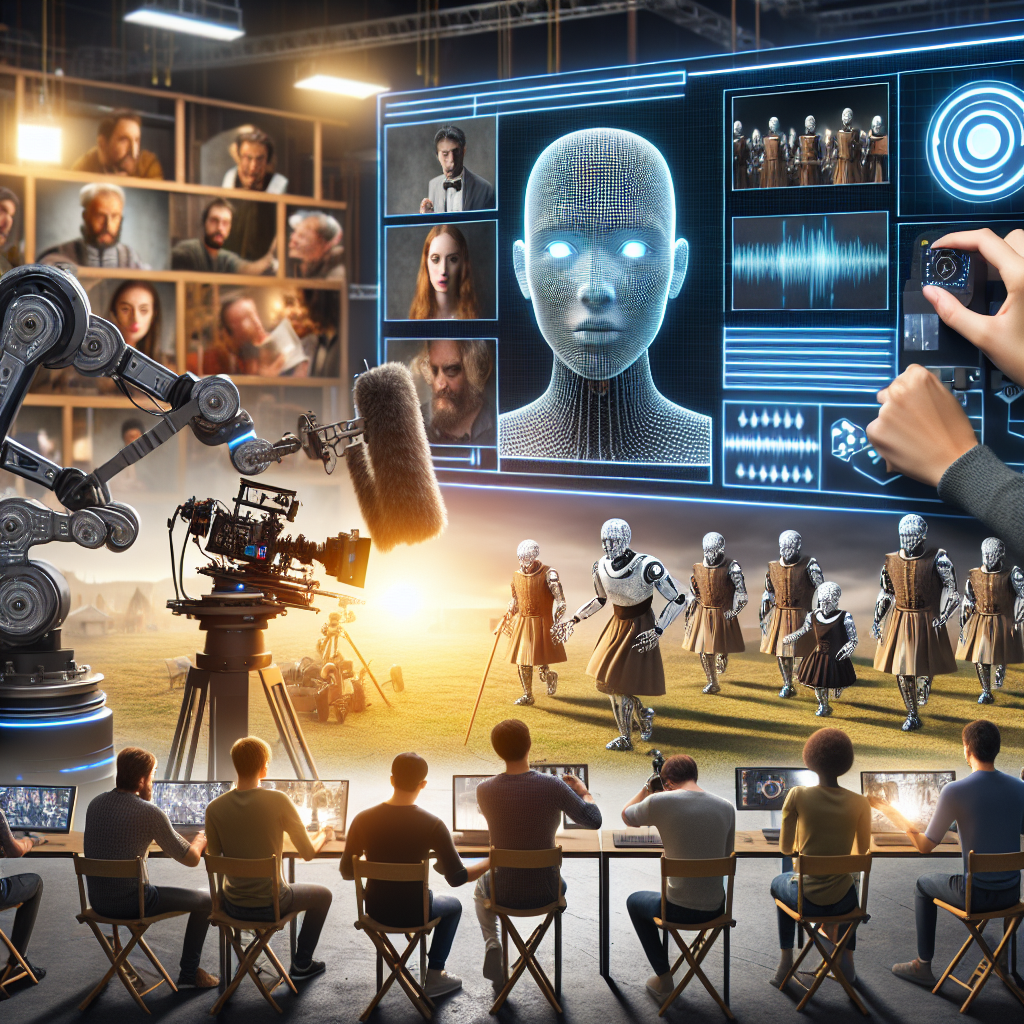
Fully AI-Generated Films
While AI is currently used to assist in various aspects of filmmaking, we may eventually see films that are entirely generated by AI. These films could be created without any human intervention, using AI to write the script, design the visuals, and even direct the actors. While this may seem far-fetched, the rapid advancement of AI technology suggests that it could become a reality in the not-too-distant future.
Virtual Actors and AI-Generated Performances
The concept of virtual actors is already becoming a reality, with AI-generated characters appearing in films and video games. In the future, we could see entire films starring virtual actors, with AI controlling their performances. This could open up new possibilities for storytelling, allowing filmmakers to create characters that are impossible to cast in real life.
Interactive and Personalized Films
AI could also lead to the development of interactive and personalized films. By analyzing viewer data, AI could generate different versions of a film tailored to individual preferences. For example, an AI-generated film could offer multiple endings, character arcs, or plot twists, depending on the viewer’s choices and preferences. This could create a more immersive and engaging viewing experience.
Summary and Conclusion
Generative AI is revolutionizing the film industry by automating tasks, enhancing creativity, and providing new ways to engage with audiences. From scriptwriting to visual effects, AI is streamlining production processes and opening up new possibilities for filmmakers. However, as AI becomes more integrated into the industry, it is crucial to address ethical considerations, such as the potential for misuse and job displacement.
Looking ahead, the future of AI in film is filled with exciting possibilities. Whether through fully AI-generated films or interactive experiences, AI is set to play a significant role in shaping the future of entertainment. As technology continues to evolve, it will be fascinating to see how filmmakers harness the power of AI to push the boundaries of creativity and storytelling.
